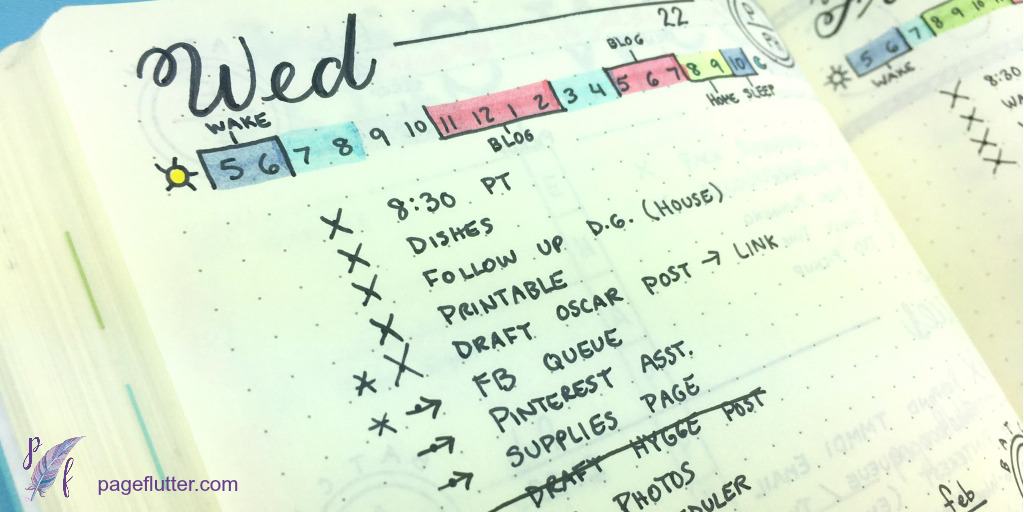Inspired by reading ersio's recent account, I want to give an update about my actual routine. This period (March April) was really productive and I felt quite grounded and balanced between all the things I wanted to do. I found some kind of homeostasis!
Then we took a week of vacation out, which didn't happen since a long while. Great from a social bonding point of view, terrible for the routine and diet.
Hay fever kicked in right after we came back, and we had to prepare our homecoming, which was quite something, we were expecting 80 people, and apart from the celebration itself, we had a lot of diverse things to do all over the place. I progressively stopped updating my done list, to focus only on my to-do list. So I began to fall off-balance, having less time to read and less free space in my mind to focus on the forum. I can say I still succeeded to check it regularly, but it was far less, and I felt progressively more tired with my running thoughts. Bad sleep and much anticipation, more alcohol and carbs consumption.
Trying to deal with Hay fever this year, I tried reducing my histamine-containing food consumption, and then I suddenly stopped coffee. No willpower needed, I just stopped for 2 weeks, me who thought that was a terribly hard thing to do. I had headaches and a nagging hip pain for a few fays. This digression is over since I succumbed at an offer the night of the homecoming.
Then the session came and it motivated me to try intermittent fasting 9AM 3PM, which is not our normal meal time. We are used to doing 12AM 8PM. I didn't last long, it is weird to eat alone and not sharing the meal with one's family. That plus not having coffee with them and being crippled with my allergy syndrome, I can say my routine has been shattered, and it certainly troubled me.
This is where I wanted to get at. It has been a period of massive improvements to me. And it has been followed by this step-back. As mentioned in HDT, after expansion there is always a contraction. During this contraction period, the echo-chamber effect kicks high in and the risk is always to fall back to bad habits of all kinds, which can leave you hopeless with well-known thought loops of guilt and self-sabotage.
As we've learned here, the brain works better when shifting from focused mode to diffuse mode regularly throughout the day. What I notice too is that there seem to be bigger, longer cycles, which last for weeks or months, and are kind of the same, at least for me:
This contraction phase always seems like a step back, and can be quite overwhelming. As I said on the carnivore diet thread, I tended to be partial, meaning I used to only report my improvements, not my regressions. It is a phase lived alone, and it grows out of silence. Just writing this frees my heart!
Does this idea of long cycles talk to anyone?
Thank for reading!
Then we took a week of vacation out, which didn't happen since a long while. Great from a social bonding point of view, terrible for the routine and diet.
Hay fever kicked in right after we came back, and we had to prepare our homecoming, which was quite something, we were expecting 80 people, and apart from the celebration itself, we had a lot of diverse things to do all over the place. I progressively stopped updating my done list, to focus only on my to-do list. So I began to fall off-balance, having less time to read and less free space in my mind to focus on the forum. I can say I still succeeded to check it regularly, but it was far less, and I felt progressively more tired with my running thoughts. Bad sleep and much anticipation, more alcohol and carbs consumption.
Trying to deal with Hay fever this year, I tried reducing my histamine-containing food consumption, and then I suddenly stopped coffee. No willpower needed, I just stopped for 2 weeks, me who thought that was a terribly hard thing to do. I had headaches and a nagging hip pain for a few fays. This digression is over since I succumbed at an offer the night of the homecoming.
Then the session came and it motivated me to try intermittent fasting 9AM 3PM, which is not our normal meal time. We are used to doing 12AM 8PM. I didn't last long, it is weird to eat alone and not sharing the meal with one's family. That plus not having coffee with them and being crippled with my allergy syndrome, I can say my routine has been shattered, and it certainly troubled me.
This is where I wanted to get at. It has been a period of massive improvements to me. And it has been followed by this step-back. As mentioned in HDT, after expansion there is always a contraction. During this contraction period, the echo-chamber effect kicks high in and the risk is always to fall back to bad habits of all kinds, which can leave you hopeless with well-known thought loops of guilt and self-sabotage.
As we've learned here, the brain works better when shifting from focused mode to diffuse mode regularly throughout the day. What I notice too is that there seem to be bigger, longer cycles, which last for weeks or months, and are kind of the same, at least for me:
- Focused/Expansion/Future: Where you can learn a lot with ease and flow, do many things productively, be proactive. The risk being obsession.
- Diffuse/Contraction/Past: Where you're more reflective and you are driven towards introspection, a time to absorb and process. The risk being the echo-chamber.
This contraction phase always seems like a step back, and can be quite overwhelming. As I said on the carnivore diet thread, I tended to be partial, meaning I used to only report my improvements, not my regressions. It is a phase lived alone, and it grows out of silence. Just writing this frees my heart!
Does this idea of long cycles talk to anyone?
Thank for reading!




